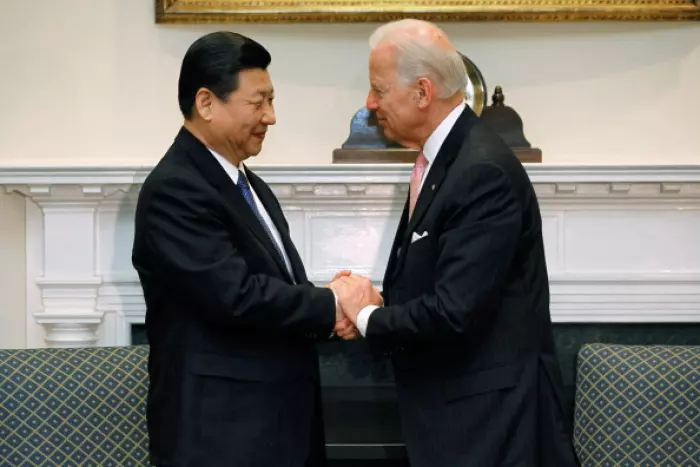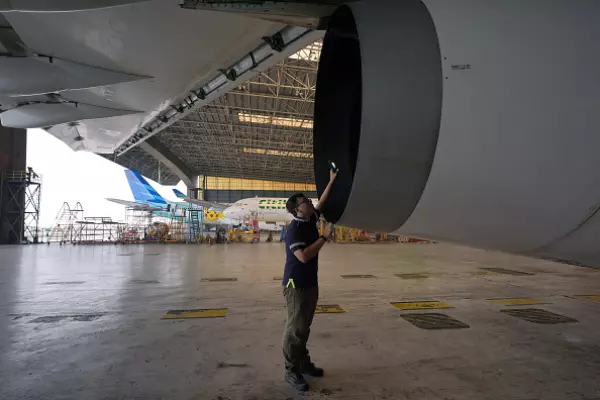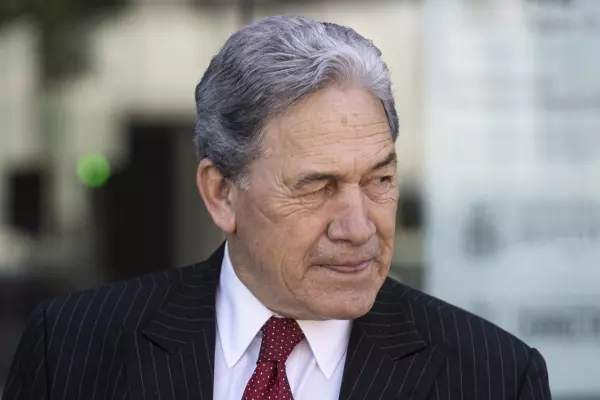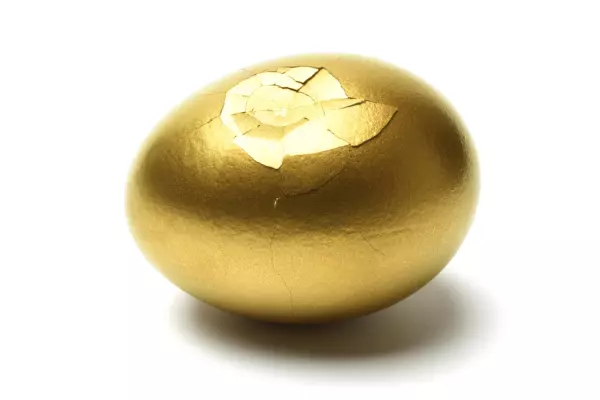It’s a terrible thought, but could China’s accelerating descent into authoritarianism be doing New Zealand a favour?
It’s making the strategic choice between two of the most powerful and unlikeable sources of global power – the United States and China – so much easier.
China under President Xi Jinping has gone from flirting with to confidently rejecting the liberal political values that underpin NZ’s successful democracy.
At the same time, President Joe Biden is already making the US look more like the great country it could be, after four years of the despotic Donald Trump.
When the choice was between Xi’s China and Trump’s America, it was easy to imagine that rejecting them both was a reasonable way for NZ to maintain a credibly independent foreign policy. It also played into the logic that said there was no need to choose.
That time is passing.
In the last 10 days, Xi has made it a crime to be an Opposition politician in Hong Kong, a shocking if not unexpected development for today’s China, which runs its north-western province of Xinjiang as an open air prison for the ‘re-education’ of its predominantly Muslim population.
At the same time, Biden has been on an early roll. A massive covid-19 vaccination roll out is targeting national immunisation by Independence Day, July 4, while a US$1.9 trillion covid relief package has been approved, targeting those most in immediate need.
Both initiatives and more stable US domestic politics augur well for a bounceback in the world's biggest economy. That can only be good news for NZ exporters of not only commodities, but the high-value exports that are starting to find success, especially among US west coast investors.
China’s swift recovery from covid-19 has been vital in the last year in underpinning demand for the agricultural commodities that account for most of NZ’s exports in the $31.5 billion two-way trade recorded in the year to December 2020.
Both the tourism and international education sectors hope that Chinese people will again start arriving in NZ in numbers by early next year – a real possibility if a sufficiently vaccinated global population starts emerging this year.
In the year ahead, ongoing Chinese strength coupled with renewed American vigour is potentially very good news for the NZ economy.
After all, US two-way trade is hardly insubstantial, at $17.6 billion in the last calendar year which, like the China trade, runs in NZ’s favour.
So we will want to keep trading with both.
But as the geo-political competition between the US and China heats up, the ease of pulling that off is already becoming fraught and will get worse.
The Indo-Pacific guard-rail
Last week’s meeting of the so-called Indo-Pacific ‘Quad’ – the US, Japan, India and Australia – showed Biden reviving the logic that drove the Obama administration’s late-term Asia ‘pivot’.
The US is seeking to rebuild alliances and relevance – it is too early to claim leadership – in this part of the world after a period of isolationist withdrawal.
China sees this and knows that a desire to contain China is almost the only thing US Democrats and Republicans agree on.
Two other Quad members – India and Australia – have seriously deteriorating relations with Beijing, while Japan is closest geographically to China and still relies on the security guarantee provided by the US ever since the Second World War.
With interests in Taiwan – which China may one day try to invade - and proximity to North Korea, a failing nuclear dictatorship that exists only with China’s blessing - Tokyo has begun mooting membership of the Anglo-centric Five Eyes intelligence grouping, which NZ belongs to with the US, Canada, UK, and Australia.
Meanwhile, China’s ‘soft’ diplomacy is on the rise in the Pacific region, NZ’s primary sphere of global interest and responsibility.
A more assertive and aligned alliance response to China’s geo-political ambitions is back on the table, even if there is little the outside world can do to counter what happens within Chinese borders.
NZ’s place
Clearly both the US and China matter as trading partners, especially in a post-covid world the Ministry of Foreign Affairs and Trade expects to be “less open, less prosperous, less secure and less free”.
It made that stark judgement in a paper late last year on the need for NZ to patch up its working relationship with Australia – a matter for another column.
At a practical level, NZ needs relationships with both superpowers, not only for trade and prosperity, but also because even small countries can use smart diplomacy to shape the way the great powers behave and influence their own futures positively.
Judged purely on the scale of two-way trade, NZ may seem to need China more than it needs the US.
However, there are powerful reasons to favour deeper economic integration with the US.
For a start, the economic integration with China can’t go a lot further. The free trade agreement that has created a whole new level of inter-dependence between both countries is 13 years old and mature.
With the US, there is a lot of unfinished business.
Trump’s first act in office was to withdraw the US from the CPTPP trade and investment pact. One of Biden’s early signals is a desire to rejoin.
For NZ, the goal of a free trade agreement with the US was the main point of the CPTPP and it slipped from our grasp. However, as the official ‘depository’ for the agreement, NZ is in the rare position of having its hands on the tiller, particularly given China also now wants in on the CPTPP.
How will we play it? And which will we judge more achievable: a bi-lateral FTA with the US or the US and China both in the CPTPP?
Meanwhile, American capital is increasingly investing in and noticing NZ's high-value technology entrepreneurs at a time when Chinese capital is becoming less attractive because of mounting political and legal commercial risk.
Moral imperative
In the end, peace and security are more important than trade, since trade is disrupted by war and insecurity.
This truth remains NZ’s most important reason to engage with both the US and China, where the issues represent ideological rather than mercantile differences.
And if there is little more to do to upgrade the China-NZ trade relationship, there is even less potential for a meeting of minds between NZ and China on political values.
Particularly now that it is shorn of the crude nationalism of Trump, the US remains a society far more like one most New Zealanders would wish to live in than the increasingly repressive state China is becoming.
Since last year’s election, the government had already shifted to a position that was not quite pro-American but has been far more muscular towards China than was ever the case when NZ First and Winston Peters, as Foreign Minister, drove NZ foreign policy.
This week’s statement from Foreign Minister Nanaia Mahuta expressed “deep concern” at the passage of the Hong Kong ‘national security’ law.
Mahuta’s statement was a joint one with her Australian federal counterpart, Marise Payne. This is significant. Firstly, it gives the signal it gives that the testy relationship on some issues between Wellington and Canberra can be bridged.
Secondly, it is not a statement by NZ that either joins or distinguishes itself from a Five Eyes position on China. The intelligence forum has been used in the last year as a vehicle for China-nobbling, but not one that sat comfortably with NZ.
And thirdly, it aligns NZ with Australia, the US’s firmest ally of the Quad.
While no NZ government minister will ever call it a ‘choice’ between Washington DC and Beijing, the evidence is that a shift is under way to a traditional ally that seems to be on the mend and away from a more recent friend whose behaviour has become cause for disappointment.













